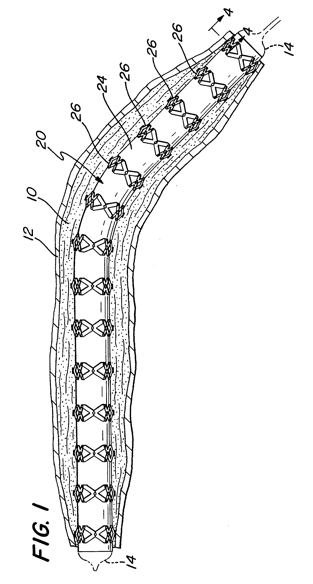 Since the Acacia Research Group‘s business model is based on acquiring patents, you would expect them to be fairly diligent about ensuring that the chain of title is solid. But it wasn’t in Endotach LLC v. Cook Medical Inc.
Since the Acacia Research Group‘s business model is based on acquiring patents, you would expect them to be fairly diligent about ensuring that the chain of title is solid. But it wasn’t in Endotach LLC v. Cook Medical Inc.
Endotach claimed to be an exclusive licensee of two patents, having acquired its rights from Acacia. The original patent owner was the inventor, Dr. Valentine Rhodes. He died with a will, but the will didn’t mention the patents. The residuary clause bequeathed “all the residue of [Dr. Rhodes’] estate, real and personal,” to a Trust of which he and his wife, Brenda Rhodes, were trustees. On his death, his daughters would become co-trustees with his widow.
Mrs. Rhodes later granted an exclusive license to Acacia for one patent, executing the document as “patent owner.” Acacia assigned the license to plaintiff Endotach. Three days before the lawsuit was filed, Mrs. Rhodes executed another document to add a second patent. About three weeks after suit was filed, the exclusive license was amended to make the trust the license grantor and was signed by Mrs. Rhodes along with the two daughters. Cook Medical moved to dismiss, claiming that Endotech didn’t have standing because the original license grant was defective, having been granted by Mrs. Rhodes personally rather than by the trust.
Endotech conceded that the patents passed to the trust on Dr. Rhodes’ death, but didn’t have much to offer after that. It claimed that Mrs. Rhodes was acting on behalf of the trust, but Mrs. Rhodes admitted that when she executed the agreements she thought she was the patent owner, and the daughters said the same.
[T]his mistaken belief cannot be corrected by an attorney’s argument that Mrs. Rhodes was really acting on behalf of the Trust and with the consent of one or more of her Co-Trustees. Both things cannot be true: she cannot both believe she owned the patents in fee simple and have signed the relevant agreements in her representative capacity as a Trustee.
The case was dismissed without prejudice, but Endotach hadn’t waited—it had already filed the new complaint.
Endotach LLC v. Cook Medical, Inc., No. 1:12-cv-01630-LJM-DKL (S.D. Ind. Aug. 6, 2013).

The text of this work is licensed under a Creative Commons Attribution-No Derivative Works 3.0 United States License.

Leave a Reply